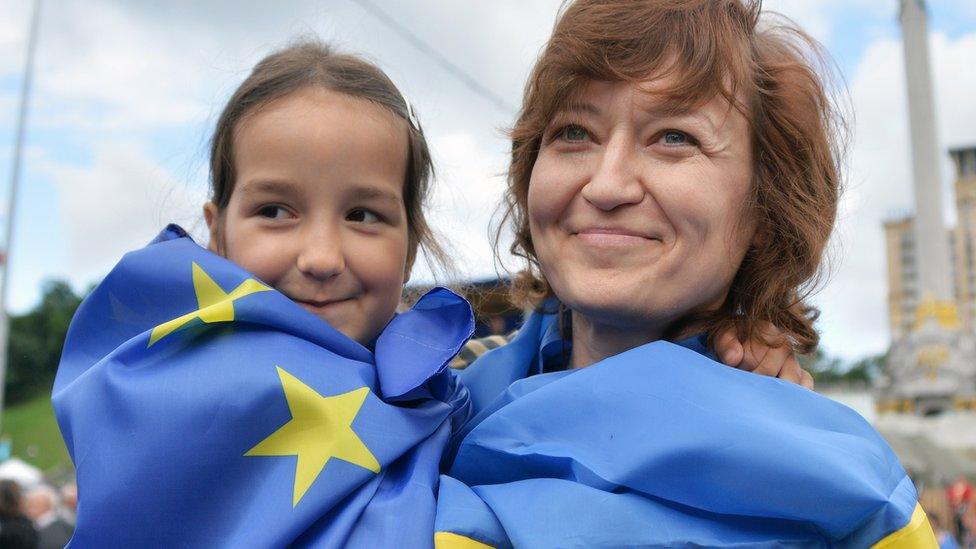Ukraine conflict: Daily reality of east's 'frozen war'
- Published
Tom Burridge looks at life on both sides of the frontline
War in eastern Ukraine is now routine for the people still living there, and there is little cause for optimism, despite a ceasefire and a strong desire for peace.
Outbreaks of fighting between pro-Russian rebels and the Ukrainian army frequently violate the truce and lives are still being lost, two years after the conflict broke out.
The front line is just 800m from the school at Oleksandrivka, a village controlled by the pro-Russian self-proclaimed "Donetsk People's Republic" (DNR).
Its soldiers are in trenches close-by, and not visible. On the school's main door is a chilling reminder of daily reality: a piece of white paper that reads: "Weapons banned inside."
Head teacher Valentina Cherkas's booming voice offers a reassuring welcome to the children as they arrive.
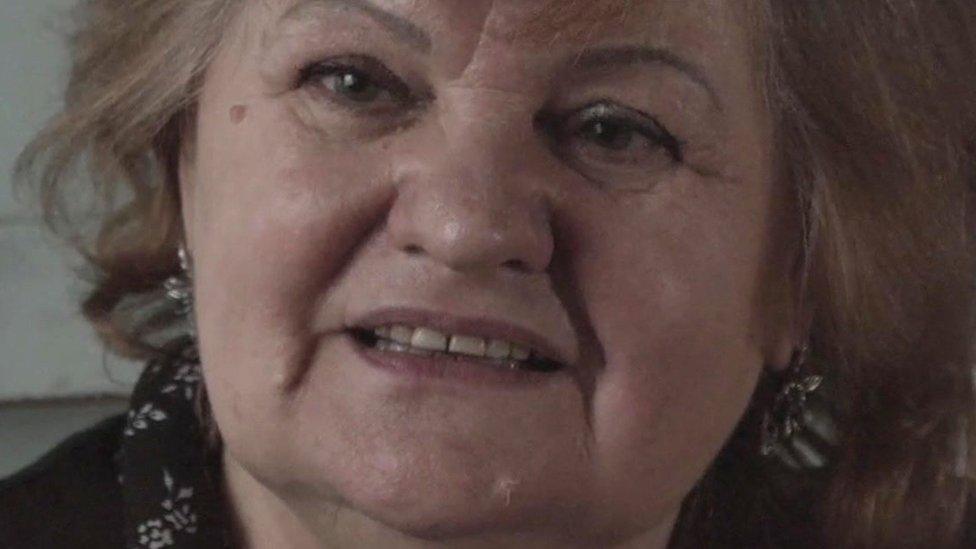
Head teacher Valentina Cherkas describes the situation as 'madness'.
Outside, by the playground, are blue flak-jacketed ceasefire monitors from the Organization for Co-operation and Security in Europe (OSCE).
"Madness" is the one word Valentina uses to sum up the war.
"You see I'm Ukrainian, and the Donbass (eastern regions of Ukraine) is my land. So it's like cutting me in half."
And that is the reality. The very eastern fringe of Ukraine has been sliced in two.
On the rebel side, where people can only watch Russian TV, some semblance of normality can be found in pockets of the main city in rebel hands, Donetsk.

More stories about Ukraine
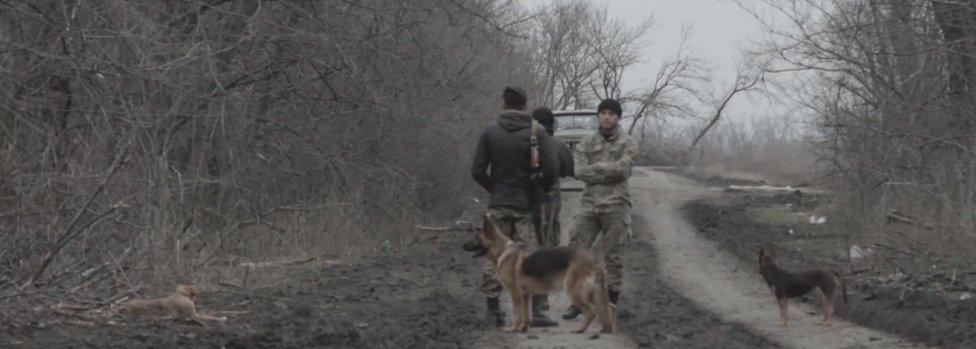

At a bustling market, the Russian rouble is the only money changing hands, as it is now the official currency of DNR.
Among the city's disproportionate number of pensioners, stories of destroyed houses and divided families are common.
A stoical, cash-strapped woman of 62 blames Ukraine for the fighting and says her heart has "always been leaning towards Russia".
But Yilena, 25, is visiting her family in Donetsk and is representative of a huge number of largely younger people who have left this territory.
"There is no future here and no prospects," she says.
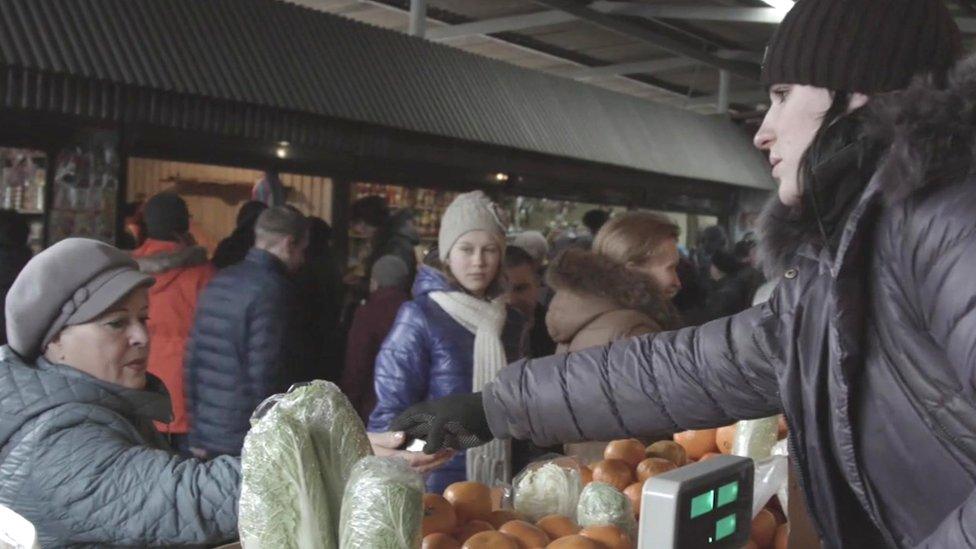
Shoppers in Donetsk now use Russian roubles in the local market
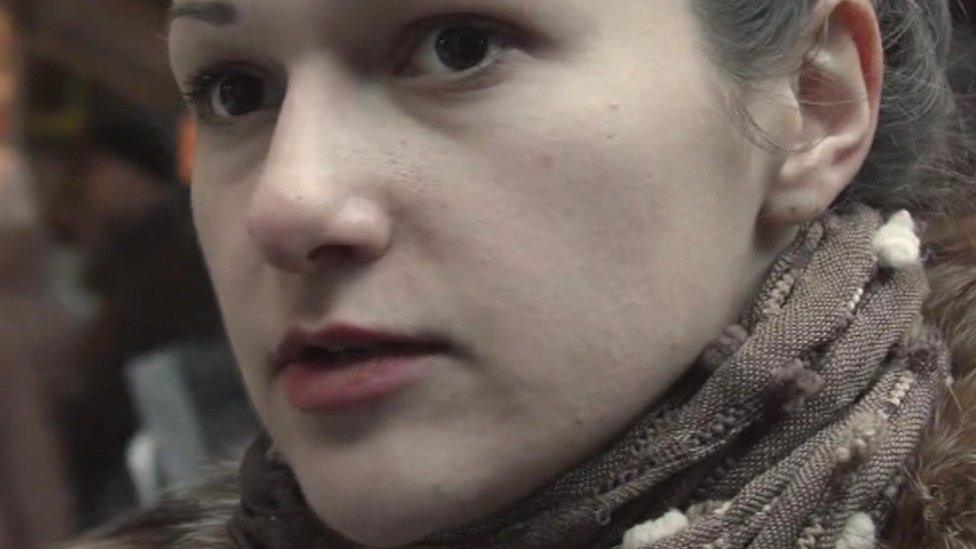
Many young people like Yilena want to start a new life somewhere else
In her opinion, people left here have become hostages to the conflict.
"I have a nice flat here. [But] it's easier for me to abandon my home and look for a future elsewhere."
Barricades
Back at the school, as a class of teenagers study the latter period of the Soviet Union under Mikhail Gorbachev, their teacher calls them to their feet.
"We do not want war! We want peace!" they chant in unison at our camera.
Two years after the war began, people are increasingly weary of the daily fighting close to the school.
Class teacher Galina Maxinovna sees the war as between "two groups of representatives of the same people".
And as if pleading to politicians on both sides she says; "It is members of the same family. Because you have your relatives on both sides of the barricades."
Little progress
But while the citizens crave peace, there has been little or no progress in the corridors of diplomacy and international power.
Talks in Paris between Ukraine and Russia seemed to stall and there have been an increasing number of ceasefire violations.
Minor agreements are overshadowed by the bigger, intractable issues of elections; the future status of the rebel-held land; control of Ukraine's border with Russia.
Western analysts and Ukraine accuse Russia of wanting to keep the war going, in order to undermine Ukraine's stability and drain the country of vast financial resources, while the economy is in dire straights.
The pro-Russian authorities in Donetsk blame Ukraine for the continuing fighting.
What is certain is that Ukraine's chances of becoming a prosperous nation, allied to the West, will become undermined if the conflict drags on.
- Published7 April 2016
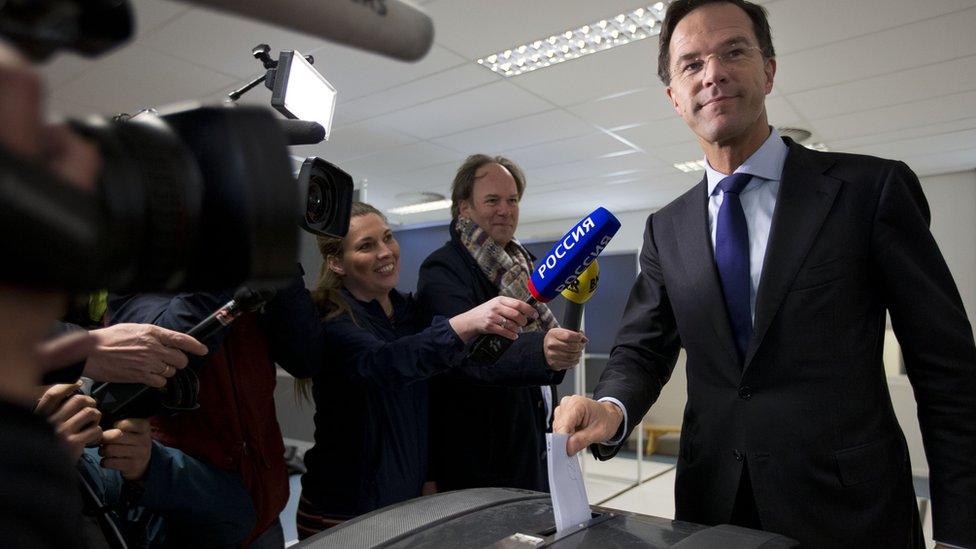
- Published7 April 2016
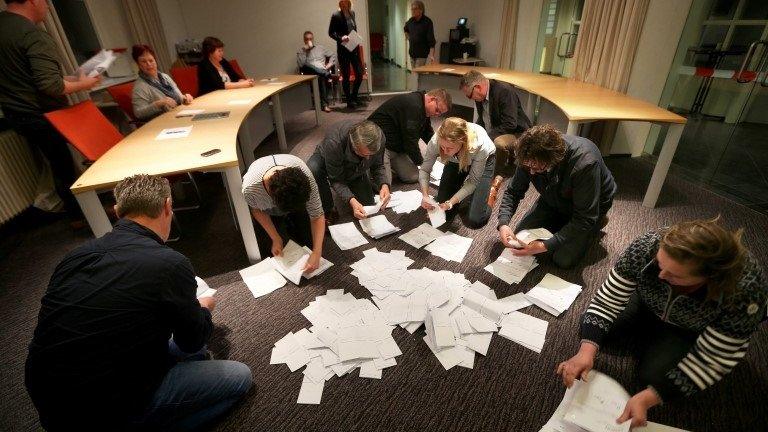
- Published12 March 2016
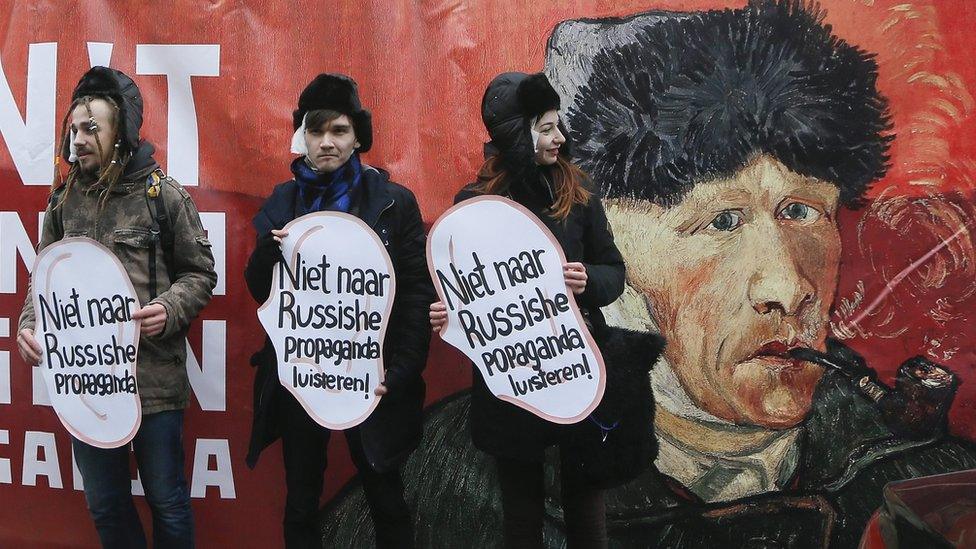
- Published14 October 2015
